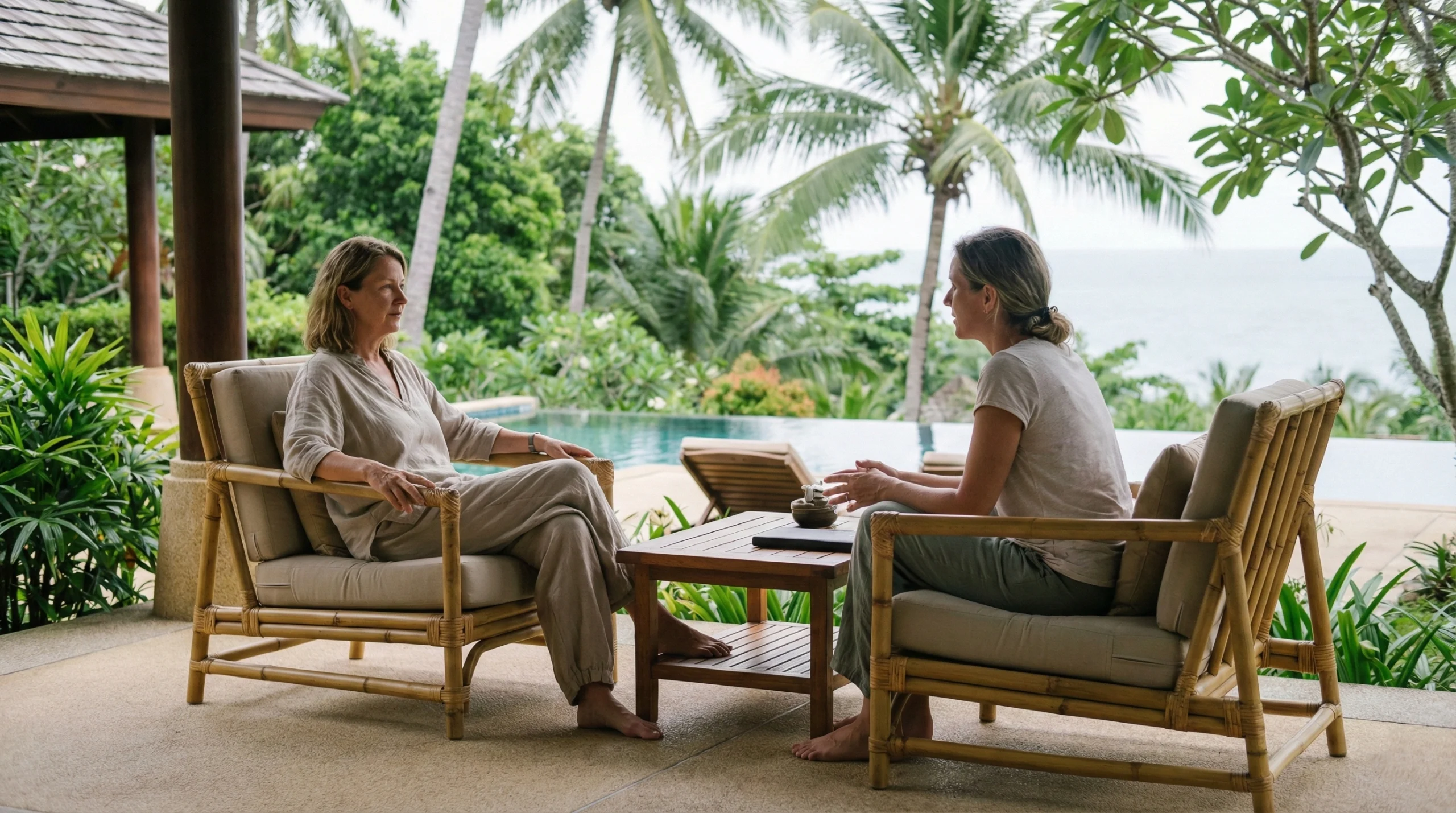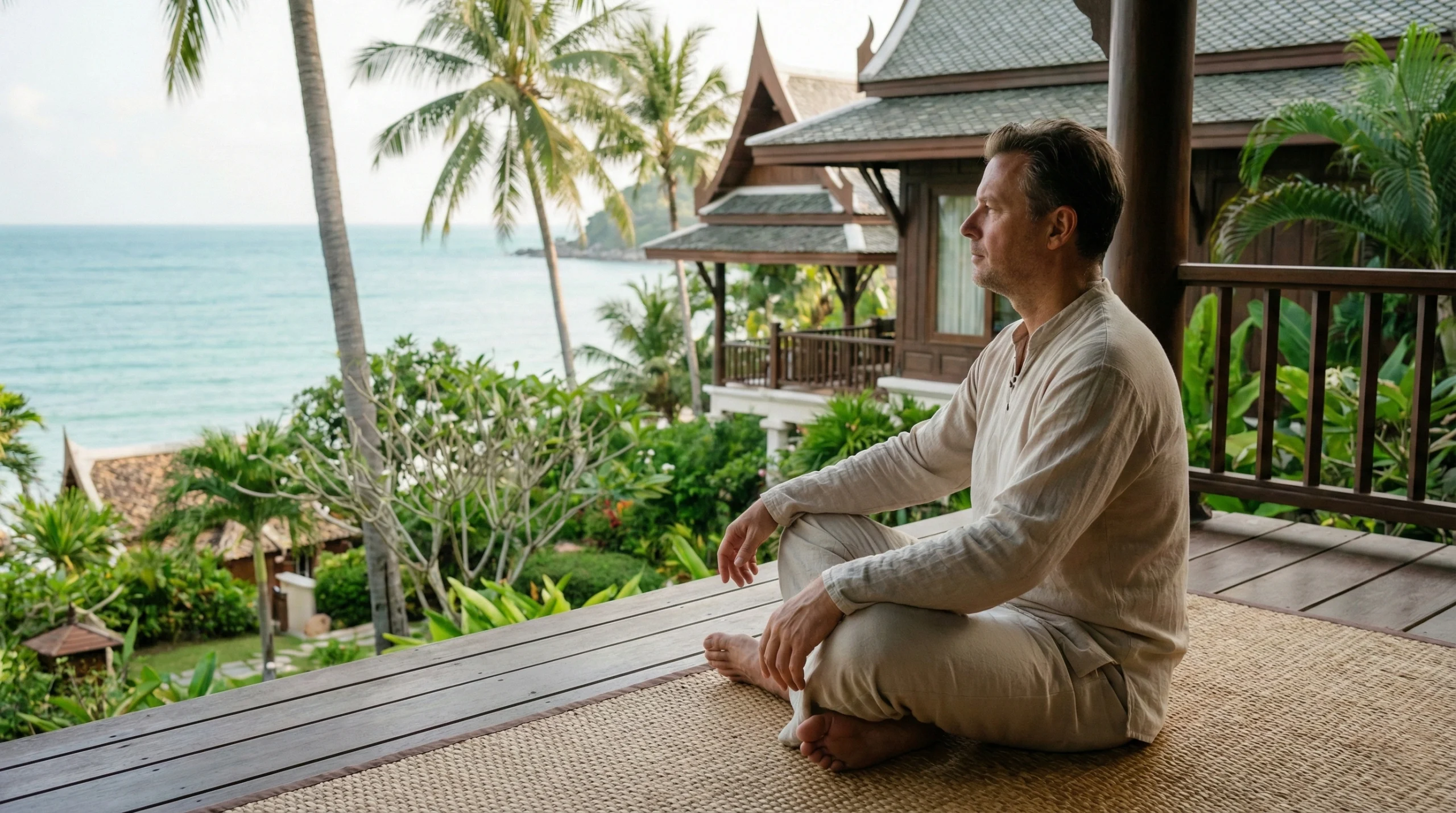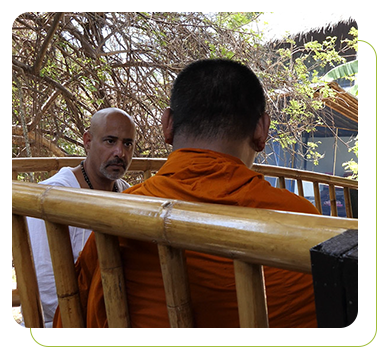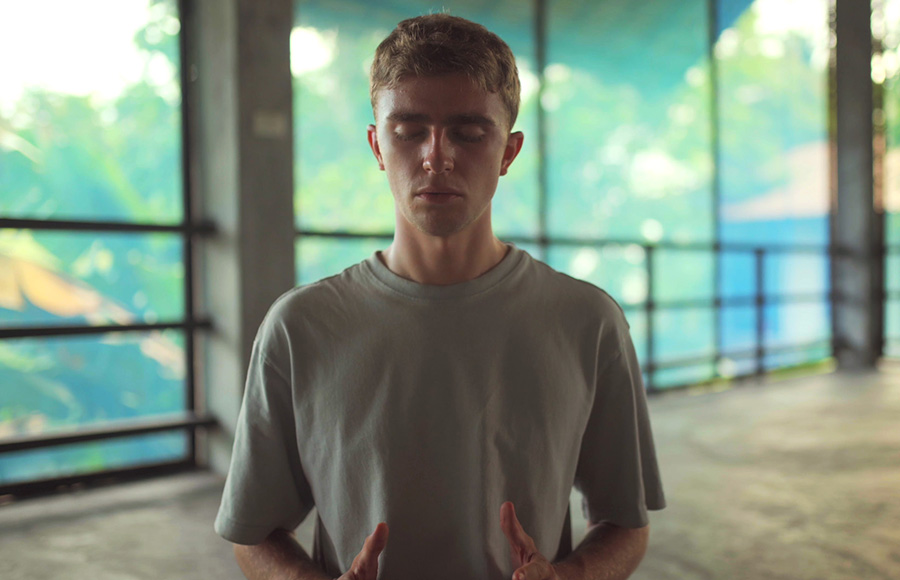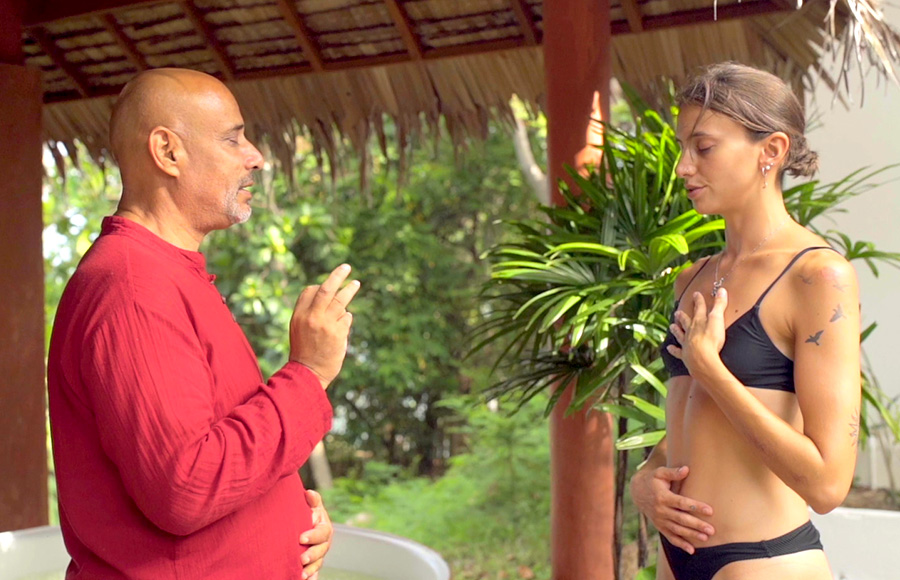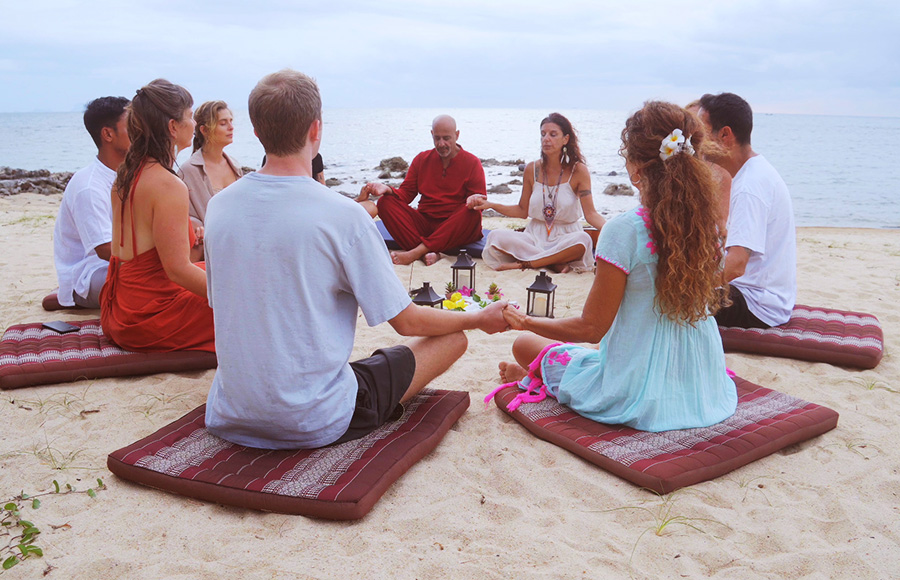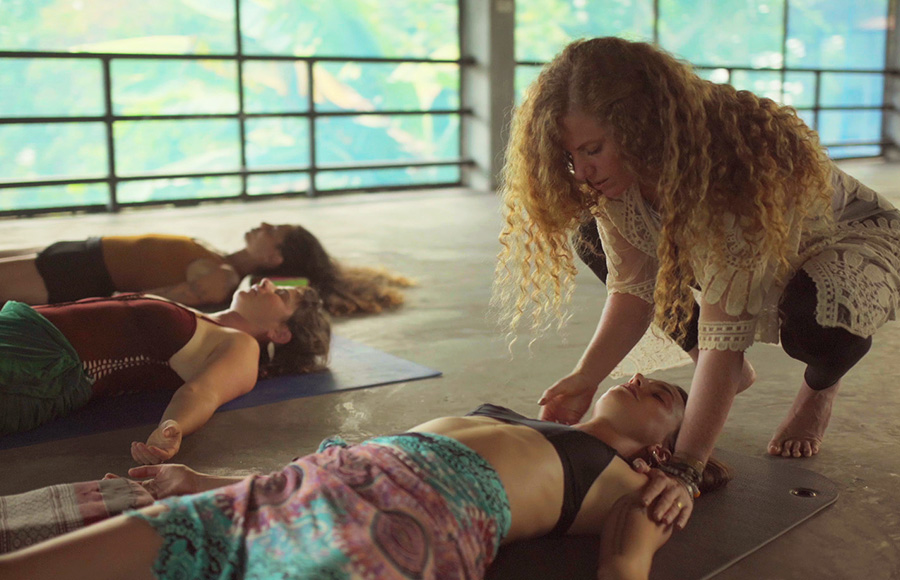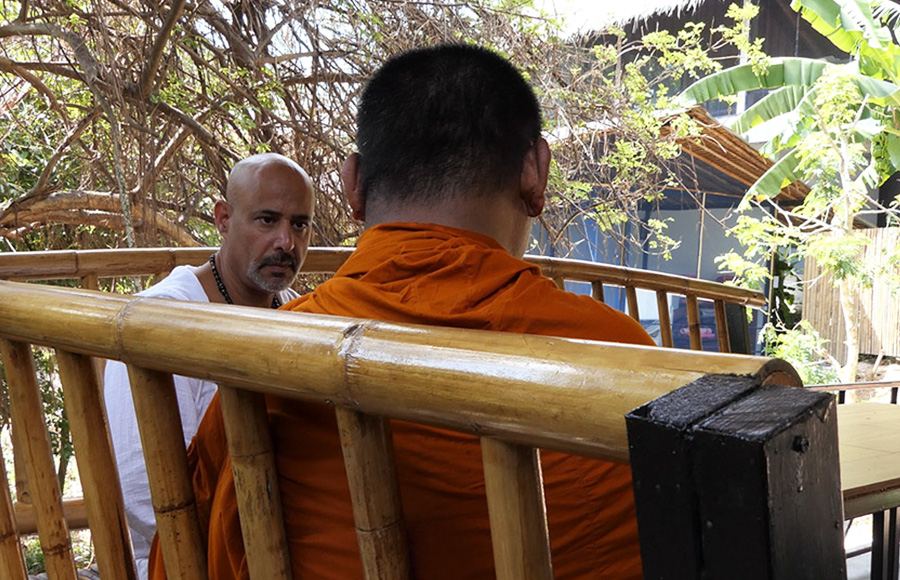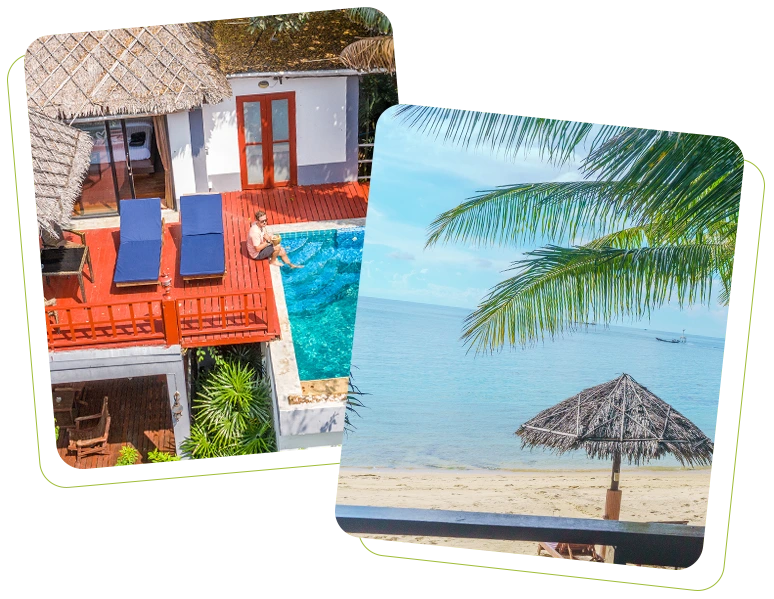Healing Relationships in Recovery: Rebuilding Trust and Connection
05 min read
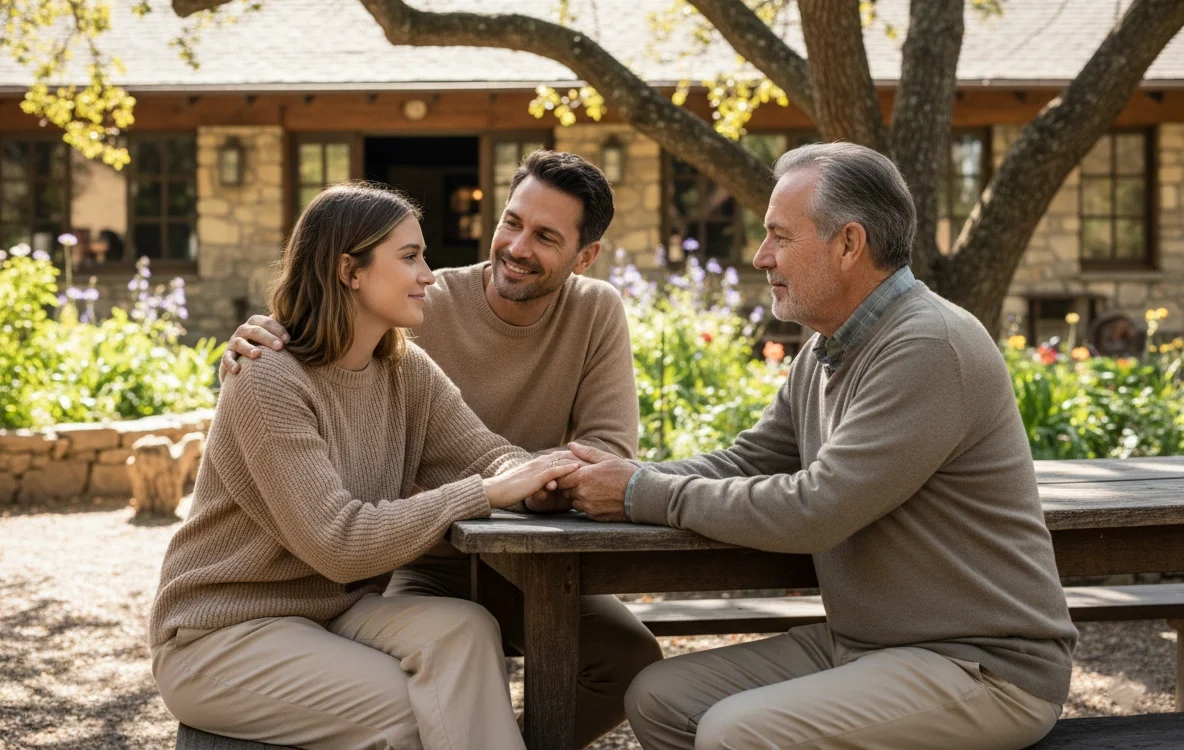
Healing Isn’t Done Alone
Addiction doesn’t happen in isolation — and neither does recovery.
Every relationship, from family to friendship to love, is affected by the ripple of addiction. There are broken boundaries, unspoken pain, and often, a trail of mistrust.
But where there has been harm, there can also be healing.
At Holina Rehab Thailand, relationship recovery is part of the journey — not an afterthought.
Because when you begin to heal your connections, you rediscover the one truth addiction tries hardest to hide:
You were never meant to do this alone.
How Addiction Impacts Relationships
Addiction strains every connection it touches.
Lies, secrecy, emotional withdrawal, and unpredictability can leave loved ones feeling confused, hurt, or powerless.
Over time, the foundation of trust begins to crack.
But underneath the damage lies something tender — love, longing, and the hope that things can be different.
At Holina, we help clients and families understand addiction not as a moral failing, but as a condition rooted in pain, trauma, and disconnection.
When that truth is seen, blame gives way to understanding — and understanding becomes the soil for trust to regrow.
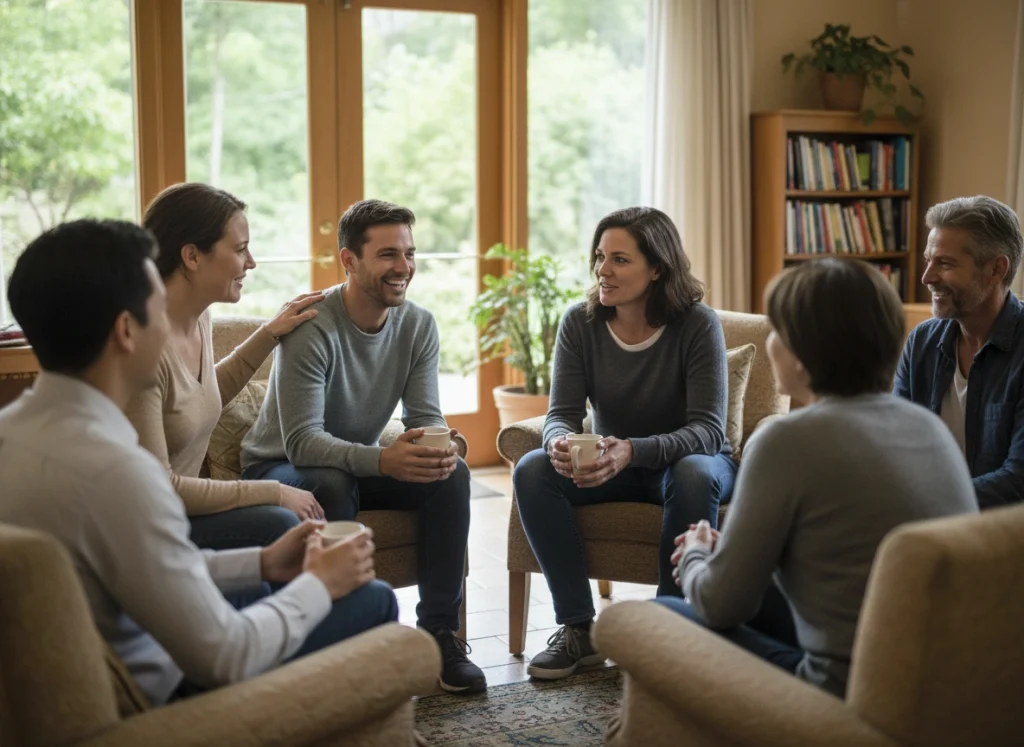
The First Relationship to Heal: Yourself
Before healing relationships with others, recovery begins by rebuilding your relationship with yourself.
Years of addiction can distort self-perception — replacing self-trust with shame and self-criticism.
At Holina, we help clients reconnect with self-compassion through therapy, mindfulness, and inner work.
This internal healing creates the foundation for external repair.
Because you can’t build healthy relationships until you’ve learned to treat yourself with kindness, honesty, and respect.
“The moment I stopped hating myself was the moment I could finally love others again.”
— Holina graduate, UK
Why Relationships Matter in Recovery
Connection is medicine.
The opposite of addiction isn’t sobriety — it’s connection.
Healthy relationships give structure, purpose, and belonging — all of which protect against relapse.
They remind clients they are loved, capable, and part of something bigger than themselves.
At Holina, connection is not just encouraged; it’s practiced.
Through group therapy, community living, and family integration, clients experience what real, supportive relationships feel like — many for the first time in years.
Rebuilding Trust: A Process, Not a Promise
Trust is fragile — and rebuilding it takes time.
It’s not restored by words alone, but by consistent action.
Holina guides clients through practical steps for rebuilding trust:
Honesty: Speaking truthfully, even when it’s hard.
Accountability: Taking responsibility for past actions.
Consistency: Showing reliability over time.
Empathy: Listening and validating others’ feelings.
Boundaries: Respecting your own limits and those of others.
We remind clients that trust isn’t something you demand — it’s something you earn, one day at a time.
Healing Family Relationships
Families often carry deep wounds from addiction — resentment, fear, guilt, or enabling behaviors.
At Holina, our family therapy program helps both sides begin again with honesty and compassion.
Through guided sessions, families learn to communicate without blame, set healthy boundaries, and process emotions together.
This work transforms the family dynamic from one of chaos to one of care.
Parents, partners, and children begin to understand that recovery is a shared process — not just for the one healing from addiction, but for everyone involved.
“When we spoke honestly for the first time, I realized my family wasn’t my enemy. They were hurting too.”
— Holina client, Australia

Setting and Respecting Boundaries
Boundaries are the architecture of healthy relationships.
In addiction, boundaries often collapse — between self and others, truth and secrecy, love and control.
In recovery, clients learn that setting boundaries is not rejection — it’s respect.
Holina teaches boundary-setting through:
Communication exercises
Role-playing in group therapy
Psychoeducation on codependency and self-care
Learning to say “no” with love — and to hear “no” without resentment — becomes an act of maturity and trust.
Boundaries create clarity, and clarity builds safety.
The Role of Forgiveness
Forgiveness is one of the most misunderstood parts of relationship healing.
It doesn’t mean forgetting, excusing, or pretending the past didn’t hurt.
It means choosing not to carry bitterness any longer.
Holina therapists guide clients through the forgiveness process — sometimes toward loved ones, sometimes toward themselves.
This often involves:
Writing unsent letters
Family dialogues
Meditation and mindfulness practices to release resentment
Forgiveness doesn’t erase pain — it transforms it into wisdom.
Letting Go of Toxic Relationships
Not every relationship can or should be repaired.
Part of healing is recognizing which connections nurture your growth and which ones drain it.
At Holina, we help clients make those distinctions with compassion.
Sometimes letting go is the most loving thing you can do — for both sides.
This discernment becomes a form of emotional maturity.
You learn that love and self-respect are not opposites — they are partners.
Building New Relationships in Sobriety
Recovery opens the door to new types of relationships — ones built on truth, vulnerability, and respect.
Through community at Holina, clients practice these dynamics daily — sharing meals, emotions, and experiences.
They learn to be seen without masks, to listen deeply, and to trust slowly.
Many form lifelong friendships rooted in shared healing.
These new relationships replace isolation with belonging — the foundation of long-term sobriety.
“The people I met at Holina became my chosen family. They knew me, not the version I pretended to be.”
— Holina alumni, Singapore
Love and Partnership in Recovery
Romantic relationships in early recovery can be complex — emotions are raw, identity is shifting, and vulnerability is high.
Holina encourages clients to take time to build a strong foundation of self-love before seeking romantic partnerships.
When love does enter the picture, recovery provides the tools to nurture it consciously — through communication, honesty, and mutual respect.
Healthy love becomes not a distraction from recovery, but a reflection of it.
The Role of Community in Healing Relationships
Community is where new relational skills are practiced daily.
At Holina, every meal, group session, and evening reflection circle becomes an opportunity to connect honestly and safely.
This environment helps clients relearn how to trust, share, and support — without fear of judgment.
Through community, relationships shift from dependency to interdependence — a space where everyone grows together.
Apology and Amends
Saying “I’m sorry” can be one of the hardest — and most healing — moments in recovery.
Amends are not just about righting wrongs; they’re about realigning integrity.
Holina’s therapists guide clients through the amends process with care, helping them approach it with empathy and readiness.
Some amends are spoken, others written or symbolic.
What matters is sincerity — not perfection.
Amends rebuild the bridge between past and present — allowing both sides to cross with grace.
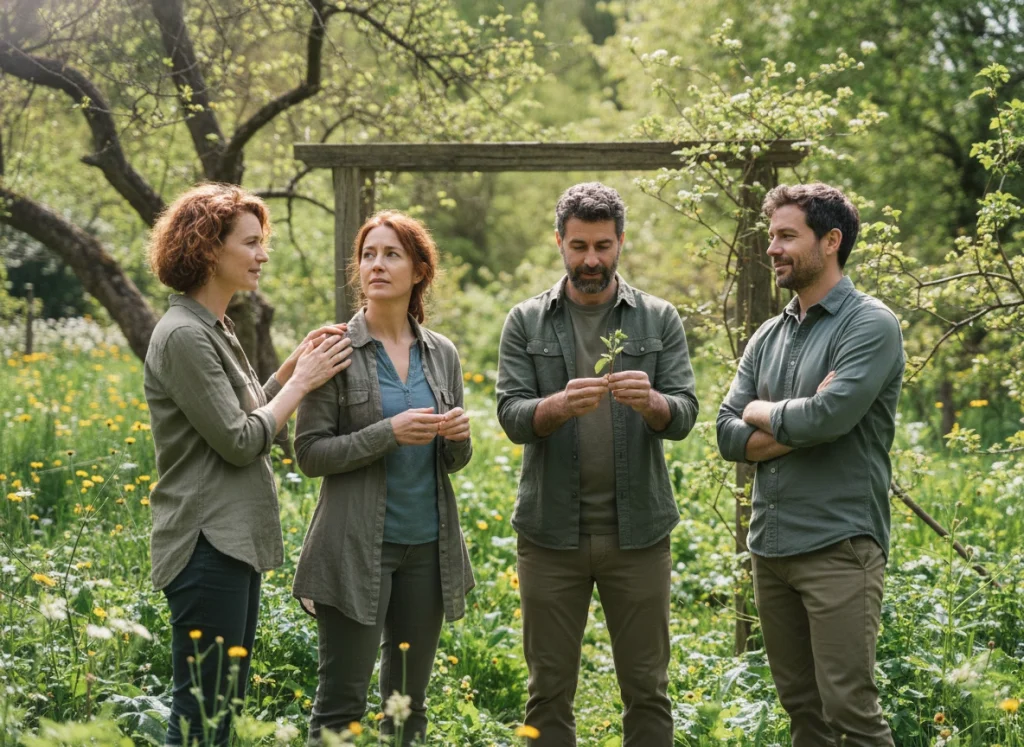
Relapse and Relationships
Relapse, if it happens, can deeply affect relationships.
Loved ones may feel hurt, betrayed, or afraid to trust again.
At Holina, we teach that relapse does not erase progress — it invites deeper understanding.
Clients learn to take responsibility, seek support, and reestablish connection honestly.
Recovery is about repair, not performance.
Each honest return strengthens the foundation of trust.
Healing the Inner Relationship
Beneath every external relationship lies an inner one — between you and yourself.
At Holina, this is where the deepest healing occurs.
Through therapy, mindfulness, and somatic practices, clients learn to become their own source of comfort, encouragement, and care.
When that inner relationship softens, external ones begin to follow.
Love becomes less about need and more about connection.
Family Week at Holina
Holina’s Family Week Program is one of the most transformative parts of the journey.
Families come together for workshops, therapy sessions, and healing rituals — rebuilding understanding and compassion.
They learn about boundaries, relapse prevention, and communication, while also sharing meals and experiences that foster new memories.
This week often marks a turning point — when family members shift from pain to partnership in the recovery process.
“We didn’t just talk. We healed. For the first time in years, we felt like a family again.”
— Parent of Holina graduate, UK
Aftercare: Maintaining Healthy Relationships Beyond Rehab
After leaving Holina, clients receive ongoing support through alumni networks, online meetings, and personal coaching.
These connections reinforce the principles of healthy relating — honesty, accountability, and care.
Clients also have access to relationship coaching and family integration support as part of aftercare.
This continuity helps maintain balance as they return to daily life, reuniting with loved ones with confidence and self-awareness.
Stories of Reconnection
“I thought I’d lost my family forever. Now we talk every week. There’s honesty — and laughter again.”
— Holina client, Germany
“Holina didn’t just help me heal from addiction. It helped me learn how to love again.”
— Holina graduate, Australia
“My relationships used to be built on fear. Now they’re built on trust.”
— Holina alumni, Singapore
Every story shares the same theme: reconnection — to self, to others, to life.
FAQs About Relationship Healing at Holina Rehab
Q1: Will my family be involved in my recovery?
Yes. Holina encourages family participation through therapy, education, and the Family Week program.
Q2: What if my loved ones don’t trust me anymore?
Trust takes time. Holina helps you rebuild it through consistent honesty, accountability, and care.
Q3: Can I repair every relationship?
Not always. Some may heal, others may end. Holina helps you discern which relationships are healthy to rebuild.
Q4: What if I don’t have supportive relationships?
You’ll begin to build new, healthy ones at Holina — through community and connection.
Q5: How can I keep my relationships healthy after rehab?
Practice boundaries, honesty, and regular communication. Holina’s aftercare provides tools and community to support this long-term.
Conclusion: Healing Together, Growing Together
Addiction isolates — but recovery reconnects.
It’s the process of remembering that you are worthy of love, forgiveness, and belonging.
At Holina Rehab Thailand, we believe relationship healing is not about rewriting the past, but about writing a new story — one grounded in honesty, compassion, and courage.
When you heal the way you relate to others, you heal the way you relate to life itself.
Because connection isn’t just part of recovery.
It is recovery.
Begin your healing journey with Holina today.
Get back to yourself — and back to those who matter most.
About Me
Ian Young
Ian Young is the Global Manager at Holina Care Centres in Koh Phangan, Thailand. Ian oversees the rehabilitation programs that blend the 12 Step model, Psychology, Counselling, Coaching, Somatic and many other therapeutic engagements, alongside various evidence-based therapies with holistic healing practices. Holina Rehab treats addictions, trauma, anxiety, depression, and other emotional challenges, offering comprehensive care in a serene resort environment. Ian, a charismatic speaker and author of “It’s Not About Me” leveraging his own recovery journey from addiction to inspire and guide others toward a fulfilling, addiction-free life.
Recent Blogs
-
29 Jan, 2026
The Ultimate Guide to 12-Step Rehab in Thailand

